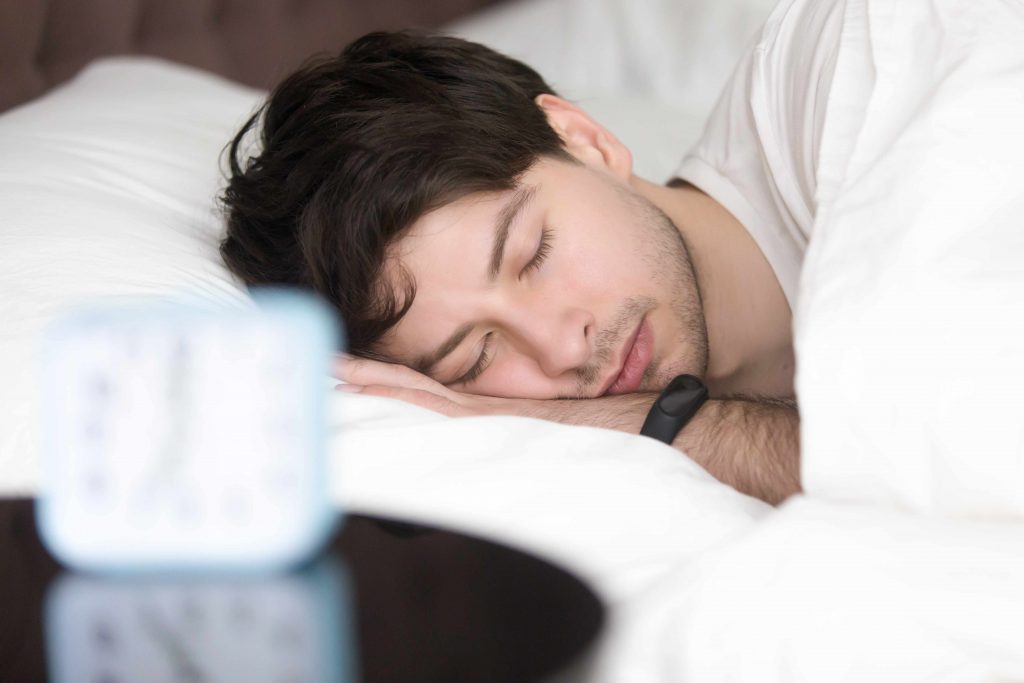 DEAR MAYO CLINIC: I wear a fitness device that tracks my sleep. It shows that most of my sleep is light sleep and that I rarely am in deep sleep. Is this kind of sleep tracker reliable? If so, is there a way I can get better sleep? I sleep about six or seven hours each night.
DEAR MAYO CLINIC: I wear a fitness device that tracks my sleep. It shows that most of my sleep is light sleep and that I rarely am in deep sleep. Is this kind of sleep tracker reliable? If so, is there a way I can get better sleep? I sleep about six or seven hours each night.
ANSWER: When it comes to identifying the difference between light sleep and deep sleep, research has shown that fitness trackers are not accurate. Rather than relying on your device to measure how well you sleep, consider basing your assessment of sleep quality on how you feel when you wake up. If you don’t feel well-rested, and it’s affecting your daily life, that might prompt a change in your habits or possibly a sleep evaluation.
Wearable fitness trackers and apps that claim to measure sleep have become quite popular. Typically, they display information about sleep and wake time. Some offer assessment of light sleep versus deep sleep, as well as how often you wake up during the night and how long you stay awake. The manufacturers don’t share details about the technology these devices use to gather the information, but it appears that most rely on motion detection.
To evaluate the usefulness of wearable trackers and apps, more than 20 research studies have examined the accuracy and validity of the sleep information they generate. The results show that, when compared to polysomnography — considered by sleep medicine specialists to be the gold standard of sleep tests — the devices are largely inaccurate. Their accuracy particularly deteriorates for people who wake up often during the night.
In addition to being unreliable in distinguishing between different sleep stages, the sleep trackers and apps are inexact in their ability to measure the time it takes to fall asleep, overall sleep efficiency and total sleep time. The general problem is that, although the devices are fair to good at detecting when you’re asleep, they are poor at determining when you are awake during the night.
A better way to tell if you’re getting the sleep you need is to consider how you feel throughout the day. You mention that you usually get six or seven hours of sleep. Based on existing sleep research, the American Academy of Sleep Medicine recommends healthy adults consistently get at least seven hours of sleep a night. If you wake in the morning feeling well-rested and able to function throughout the day, there’s probably no need to be concerned.
If, however, you have any of these symptoms, consider seeking medical evaluation: significant difficulty falling asleep or staying asleep; frequent loud snoring; waking up with a gasping or choking sensation; breathing pauses in sleep; frequently waking up; waking in the morning after a full night’s sleep not feeling refreshed or with a headache; or often feeling sleepy during the day.
Some changes can improve your sleep. Try to maintain a consistent sleep-wake schedule, and make sleep a priority. But don’t spend more than about eight hours in bed per day. Avoid caffeine after noon, and limit it to one or two servings. Exercise during the day, but try to do so at least six hours before you go to bed.
Take time to wind down before bed, and establish a daily bedtime routine. Use the bedroom only for sleep and sex. Avoid excess alcohol use and heavy meals before bedtime. Remove electronics from your bedroom, and avoid looking at the clock. When you go to bed, wear comfortable clothing, and keep your surroundings dark, cool and quiet. If you can’t fall asleep, get out of bed and do a boring activity until you become drowsy.
If you feel persistently sleepy, despite good sleep habits, or if you have other symptoms of sleep problems, make an appointment to see your health care provider. He or she can evaluate your situation and help you decide if a consultation with a sleep specialist may be useful. — Dr. Meghna Mansukhani, Center for Sleep Medicine, Mayo Clinic, Rochester, Minnesota







